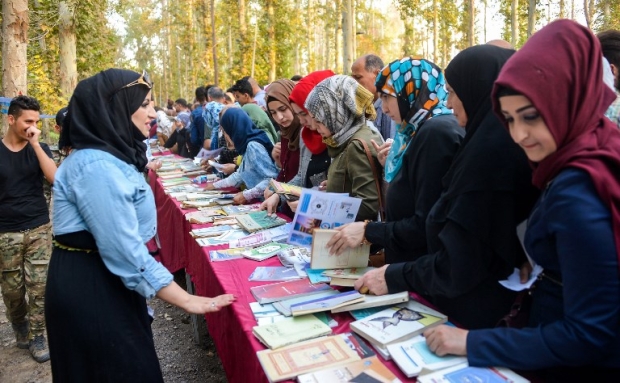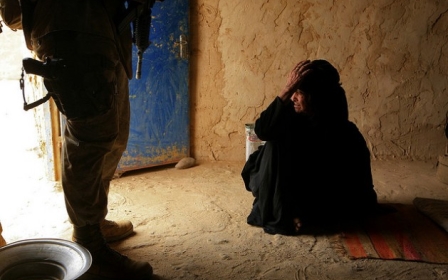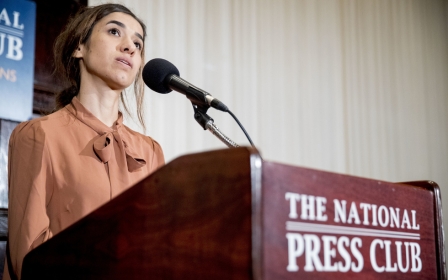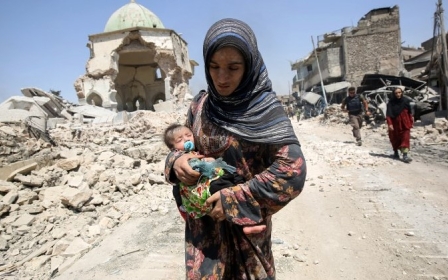From Nadia Murad to Suad al-Ali: Iraqi women fight for political inclusion
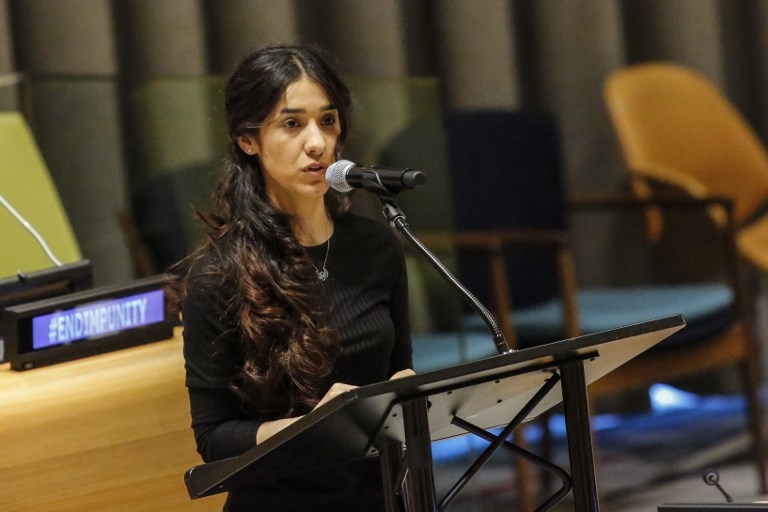
The awarding of the Nobel Peace Prize to Nadia Murad, an Iraqi activist from the Yazidi community who escaped capture by the Islamic State (IS) to become an outspoken ambassador against human trafficking and sexual violence, comes amid a series of murders targeting Iraqi women. Two worked in the beauty industry, one was an Instagram model, and one was a frontline activist in the ongoing anti-corruption protests in Basra.
Iraqi authorities have speculated that some of these murders are crimes of a personal nature, with investigations ongoing. Some observers in Basra believe that the killing of human rights activist Suad al-Ali was likely politically motivated, and that the perpetrators were militia members, aiming to crush protests. All of the slain women were outspoken about women’s rights.
Outspoken voices silenced
The Iraqi government had nominated Murad, who won the 2018 award alongside Denis Mukwege, for the Nobel Peace Prize as early as 2016. It will celebrate her well-deserved award as an achievement for Iraq. Yet the Iraqi government cannot credibly laud Murad’s win while it is not giving serious attention to women’s rights in Iraq more generally, and to the murders of the four outspoken women.
Iraqi women are playing an important sociopolitical role in the country, and reformers in Iraq must capitalise on their work if they are serious about reform.
The challenges faced by women’s groups in Iraq align with the concerns of wider society that are driving the current protests, centred on a lack of transparency and accountability
Although there are positive signs in the recent cabinet formation process, which saw gracious signals from competing politicians and the appointment of a compromise figure as prime minister, political life in Iraq at large is in urgent need of renewal. This cannot happen as long as women’s challenges and successes are compartmentalised as being outside the mainstream political milieu.
Women are at the forefront of the protest movement in Iraq. Iconic feminist activist Hanaa Edward is one of these voices. In a recent speech at the headquarters of the Union of Iraqi Authors and Writers, she underlined how successive Iraqi governments since 2003 have not prioritised human rights and have sometimes blocked the work of civil society organisations, emphasising that the fight for rights in Iraq necessitates patience and perseverance.
Fighting for inclusion
Women’s rights campaigners are also lobbying for high-level participation in government. There is a quota system in Iraq that guarantees the election of female members of parliament, but campaigners believe more is needed; even having women represented at the ministerial level is not enough, they say. During the debate over cabinet formation, they hoped for a female deputy prime minister, but that hope was not realised this time around.
Such a scenario, however, is not fantasy. Two years ago, Muqtada al-Sadr, who leads the coalition that won the most seats in Iraq’s current parliament, met Edward on the basis that they both shared reformist and nationalist agendas.
But there are still serious hurdles. Last December, women's rights activists successfully lobbied against a bill that would have introduced changes to Iraq’s personal status law, including to permit the marriage of underage girls. Shia and Sunni advocates of the proposed law used this defeat to rally voters in the run-up to the May elections, citing an intention to put the legislation up for parliamentary consideration again. Women’s rights activists are thus girding for a potential new confrontation.
Challenges and successes
Iraqi women must also grapple with the government’s inadequate handling of serious problems. One women’s rights activist mentioned how difficult it is to get information on sexual violence in refugee camps in areas such as Salahideen, Mosul and Duhok - a complaint that the local security forces in charge of the camps have denied.
The activist also pointed to the meagre compensation given by the central government to women who had been detained by IS; this compensation only materialised after continuous campaigning by women’s groups.
The challenges faced by women’s groups in Iraq align with the concerns of wider society that are driving the current protests, centred on a lack of transparency and accountability. Equally, the successes of women’s rights campaigners in countering misogynistic practices, and the awarding of the Nobel Peace Prize to Murad, constitute an important asset for Iraqi reformists with political influence.
- Lina Khatib is the head of the Middle East and North Africa Programme at Chatham House. You can follow her on Twitter @LinaKhatibUK.
The views expressed in this article belong to the author and do not necessarily reflect the editorial policy of Middle East Eye.
Photo: Yazidi human rights activist Nadia Murad speaks at UN headquarters in New York on 9 March 2017 (AFP)
Middle East Eye propose une couverture et une analyse indépendantes et incomparables du Moyen-Orient, de l’Afrique du Nord et d’autres régions du monde. Pour en savoir plus sur la reprise de ce contenu et les frais qui s’appliquent, veuillez remplir ce formulaire [en anglais]. Pour en savoir plus sur MEE, cliquez ici [en anglais].



